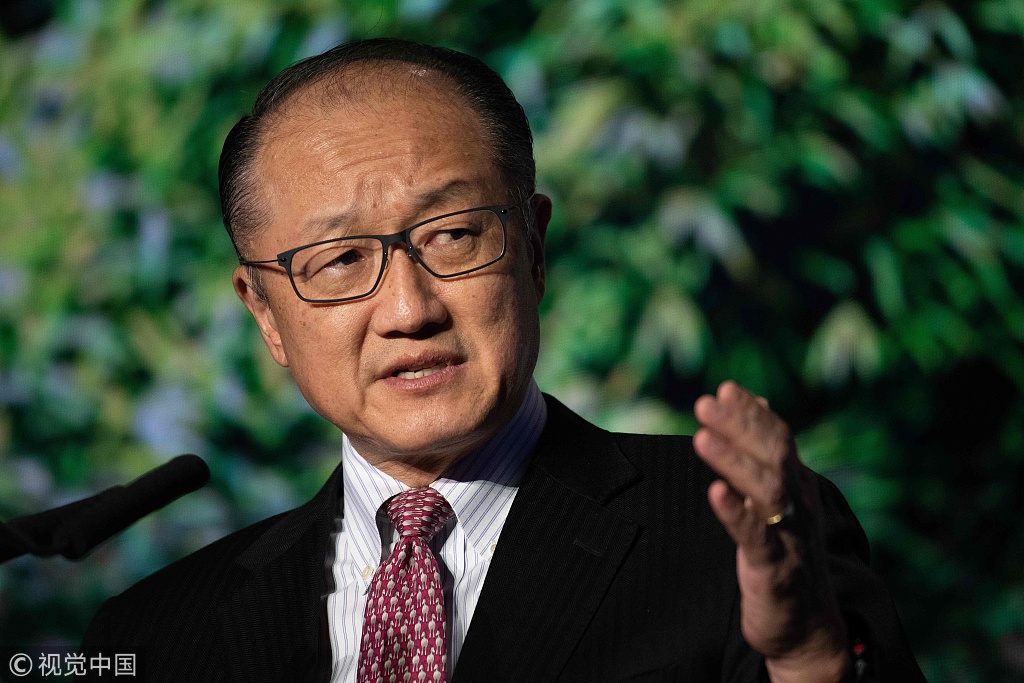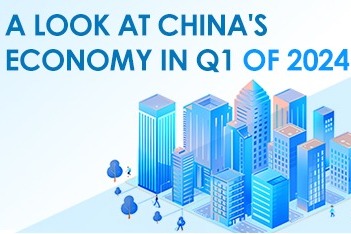Policy clash possible as World Bank head quits


The abrupt resignation on Monday of World Bank Group President Jim Yong Kim could provide the US administration with an opportunity to appoint a chief more attuned to its priorities, but some experts are questioning if picking the institution's leaders that way is tenable.
Kim, who was appointed by former US president Barack Obama for two five-year terms that expire in 2022, announced that he is resigning at the end of January.
Kristalina Georgieva, World Bank CEO, will serve as interim president from Feb 1, the international lending institution said in a statement.
Kim, who became the 12th president of the World Bank on July 1, 2012, had pushed financing for green energy projects and largely dropped support for coal-powered investments but had avoided public clashes with the Trump administration, which has made reviving the US coal industry a priority, Reuters reported on Monday.
According to the report, two people familiar with Kim's surprise announcement to the World Bank executive board said he was leaving of his own accord and was "not pushed out" by the Trump administration.
"The work of the World Bank Group is more important now than ever as the aspirations of the poor rise all over the world, and problems like climate change, pandemics, famine and refugees continue to grow in both their scale and complexity," Kim said Monday in a statement.
"Serving as president and helping position the institution squarely in the middle of all these challenges has been a great privilege," he said.
Eswar Prasad, a professor of international trade at Cornell University, said Kim had managed to strike a balance between keeping the Trump administration mollified and involving the World Bank in issues such as climate change and development financing that were not fully aligned with the administration's priorities.
He said Kim's resignation was a surprise and it came at a difficult time for the institution, which faces "many existential concerns".
With the United States being the largest shareholder in the World Bank, the US administration has traditionally chosen an American to lead the 189-member institution.
Kim's resignation provides an opportunity for the Trump administration to appoint a new World Bank head who would refashion the institution in a manner more in line with the administration's priorities, Prasad said.
"The new head of the institution will face a difficult challenge in maintaining the institution's legitimacy and relevance while hewing to the Trump administration's open hostility to multilateralism," he said.
Kim's resignation could open the door to a challenge to the traditional US prerogative of appointing the head of the World Bank, he said.
"The parceling out of the leadership of the major international financial institutions by the traditional advanced economic powers is becoming increasingly untenable," he said.
Dani Rodrik, an economist at Harvard University's Kennedy School of Government, seemed to back Prasad's point.
"It is high time the president of the World Bank was selected among the most qualified candidates anywhere, rather than among qualified American candidates," Rodrik said in a Twitter post on Monday.
Douglas H. Paal, vice-president of the Asia Program at the Carnegie Endowment for International Peace, said there is always a chance that a new leader will seek to make needed reforms.
"They all argue for reforms but cannot overcome the heavy oversight by board member countries, frustrating positive change," Paal said.
"It is hard to imagine Trump making an inspiring choice for a new leader. We should keep our expectations under control."
Gary Hufbauer, a senior fellow and trade expert at the Peterson Institute for International Economics in Washington, said he doubted that coal projects will return to the portfolio with the change of the World Bank's chief.
"As for other changes, my guess is that the new president will focus loans on least-developed countries, even though their repayment records are not the best," he said.
Kim will join a firm focused on investments in developing countries and will return to the board of Partners In Health, a nonprofit group he co-founded, the bank said in a statement.




































